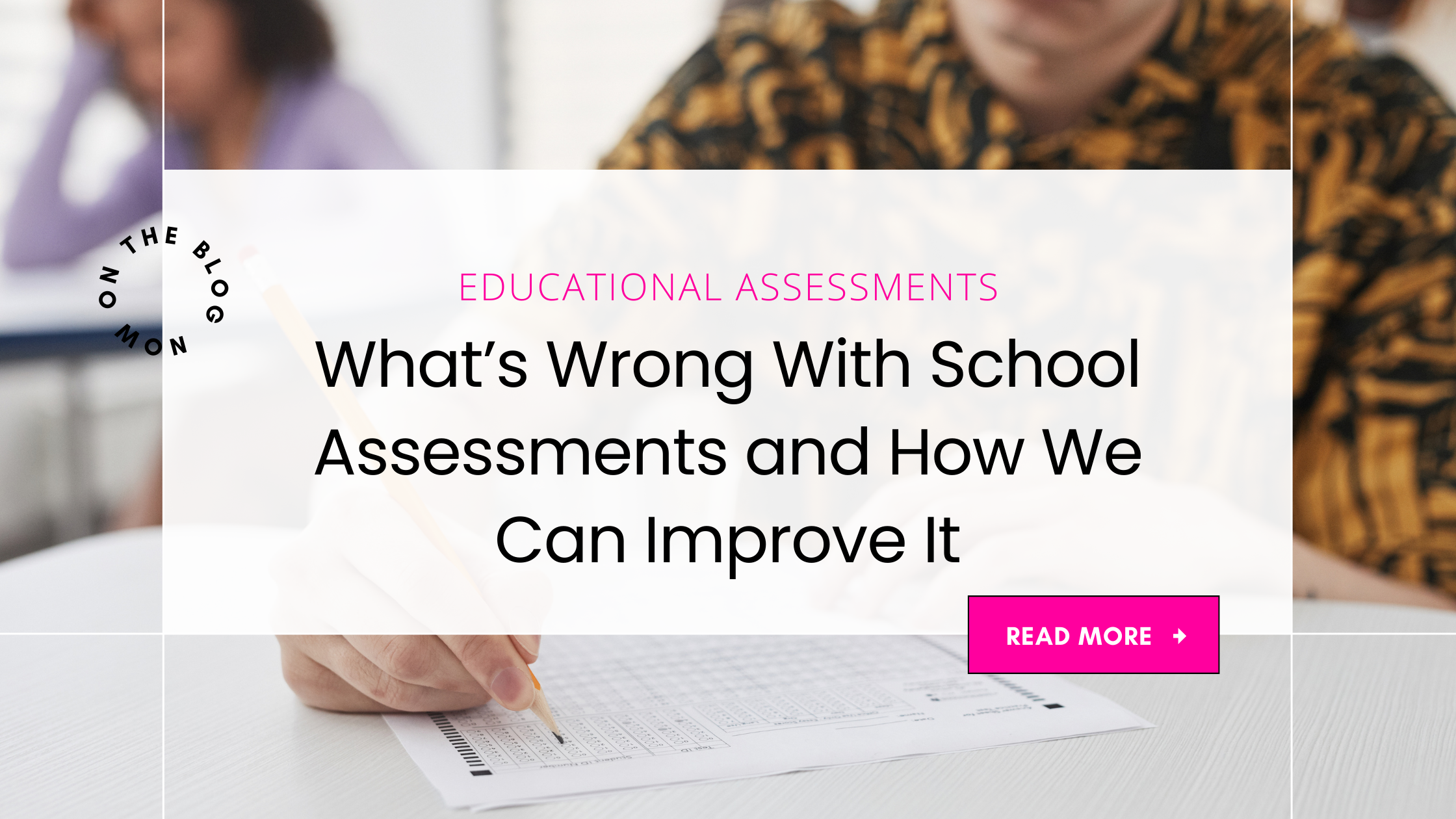Assessments are common in almost all situations including sports, art, and health, but it’s most prevalent in educational bodies as there are countless education and student assessments throughout the year.
Just think of all your online assessments, in-class tests, pop quizzes, quarterly exams, annual exams, and major leaving examinations.
So, what’s the problem with assessments? Is there even a problem? And should we try to change it when nothing seems awry? This is why...
What’s Wrong With School Assessments and How We Can Improve It
The problem with school assessments
Although school assessments have their merits such as encouraging students to study, finding where students are lacking, and tracking student progress, it comes with many cons, too. These include:
Single-minded focus and stress over grades
While performing well can be a motivator to perform better, that’s not the case for most students. They are often so focused on and stressed out about doing well that they study to ace tests, not to understand content. Learners may also think they’ve learned nothing if they do poorly in assessments.
Loss of interest in learning
As the pressure of taking tests and doing well in exams piles on, the focus of students may shift from learning to getting good grades. Many students end up memorising formulas and answers rather than understanding the concepts of the content taught to them.
Reliance on controlled environments
Some educators feel that the biggest problem with school assessments is the rigidity — they believe it can make students reliant on tests and exams with controlled conditions, replicability, and certainty. As such, students may not be able to apply concepts as effectively in a different environment.
How the COVID-19 pandemic has affected school assessments
With online learning and learning from home, learners have been catapulted into unfamiliar learning environments, forcing them to quickly adapt to new technologies, less restricted classrooom contexts, and absorb the same content in a completely different way.
The pandemic has massively impacted the way we learn and teach, so changes to assessments must be implemented in order to adapt to the new learning and teaching circumstances.
Assessment OF vs FOR vs AS learning
That’s a mouthful. We know it may sound confusing, but here’s a simple breakdown.
Assessment of learning
This is the most common school assessment as it measures students’ learning by comparing it to their classmates, schoolmates, or against a national standard.
Most tests and exams in educational bodies follow this method as it is a more traditional style of assessment that gathers results that are easy to plot and measure.
This can be helpful to grasp where a class or school lies in comparison to the rest of the country/world, but it is a flawed grading system because it relies purely on the end grade, grading rubrics, and module checklists.
Assessment for learning
This involves evidence of student knowledge, understanding, and skills so teachers can tailor their teaching to best suit student learning.
Formative assessment is another term used for assessment for learning because it helps teachers conduct evaluations during classes to aid student understanding.
Assessment as learning
This is sometimes confused with assessment for learning because the two have some overlaps. However, assessment as learning is often done by the learners themselves.
This means that students are their own assessors, so they will monitor their learning and ask questions, revise, and plan their learning according to their own strengths and weaknesses.
How can we change school assessments for the better?
What should the main aim of school assessments be? To us, they should highlight the importance of learning while testing the understanding and application of concepts through collaborative and multi-disciplinary assessments. Want to know how you can do just that? Here’s how:
Assessments should be engaging
Assessment tasks should engage students in tackling authentic challenges that contribute to community wellbeing, social justice, and sustainability.
Assessments should focus on learning progression
Assessments of student learning should be predicated on the rich and varied sources of evidence and progressions in student learning.
Assessments should build confidence
Student assessments and learning progression should be shared and showcased with community partners at local and larger scales to develop student agency, confidence, and connection to community change.”
So, which is the best style of student assessment?
From the aforementioned explanations, one may think that the best style of student assessment is assessment as learning — after all, that empowers students to learn what they need to, when they need to, and how they need to.
However, there are still benefits to assessments of and for learning because they give students and teachers a benchmark.
Benchmarking helps you to stay up-to-date, set realistic goals, boost efficiency and effectiveness, and even increase competitiveness and motivation. The key here is to strike a balance between the styles of assessments so learners do not solely focus on assessment results.
By assessing how a student is performing on their own, among various topics and classes, and against their peers, educational bodies and student assessments can have a more complete and balanced assessment to better help students.
This can also help to identify students with specific needs early on, adjust instructions, content, goals, and teaching methods accordingly, close learning gaps, track effectiveness of teaching, monitor student progress, and predict performance.
In conclusion
While the old way of assessment of learning may still help students and teachers to find where they stand and where they’re lacking during the pandemic, there is a strong rising demand to shift away from that.
If you’re looking to focus on assessment for and as learning, Noodle Factory provides online tools to support this range of learning assessments. To learn more, contact us for a demo today.
Share or Read Our Other Articles Here.
